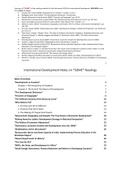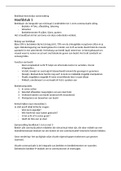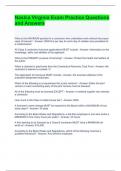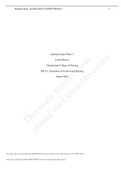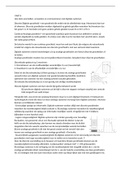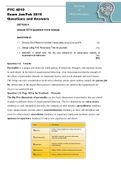Summary
Summary International Development Notes on *SOME* Readings - GRADE 7,5
- Course
- Institution
Summary of *SOME* of the reading materials for the final exam (2023) for International Development. INCLUDES notes from (Total: 35 pages): Amartya Sen’s book (1999) “Development as Freedom”, chapters 1 and 2. Wolfgang Sachs’ book (2010) “The Development Dictionary”, Introduction. ...
[Show more]
